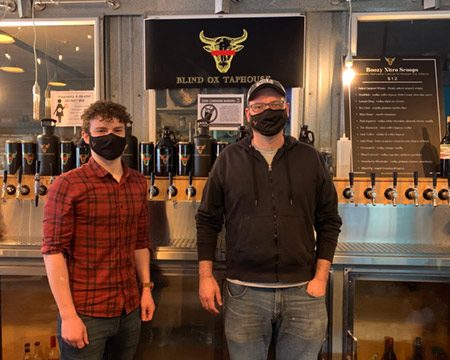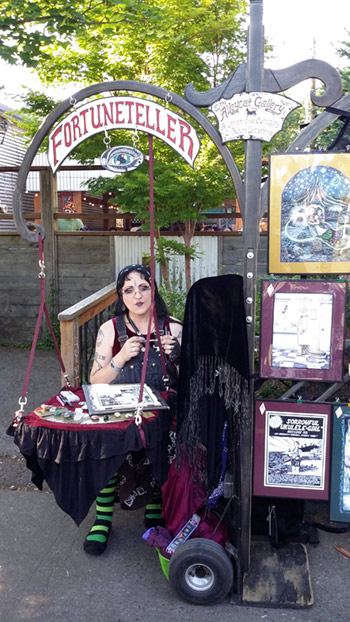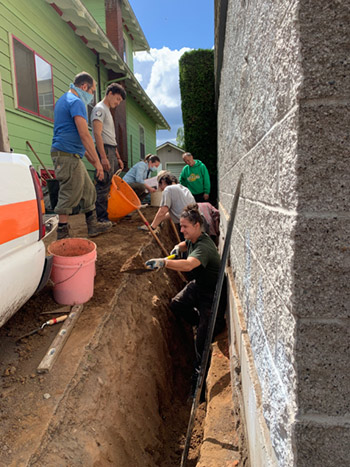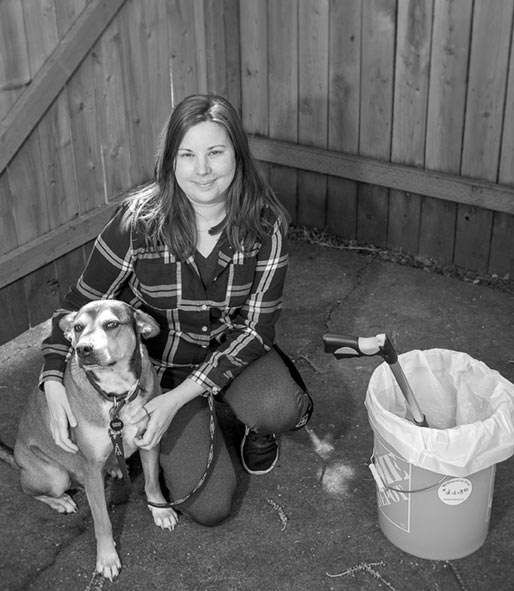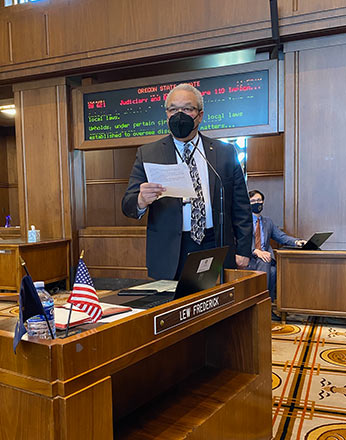By Peter Keller | CNA Chair
On my list this month is our continued need for volunteers, the Concordia University poll and coyotes.
Sadly, we have to say goodbye to Sonia Fornoni, CNA Board member and Social Committee chair. Sonia and her family are moving out of state. Sonia has been a major force on the CNA board. She also managed all of the CNA events and the McMenamins Kennedy School Community Room. She will be missed and leaves some big shoes to be filled.
The CNA Board will appoint a new board member and Social Committee chair in the coming months. If you have interest in either or both of these positions, please reach out to me and/or attend the next (virtual) CNA Board meeting. That’s Wednesday, July 7, at 7 p.m. Visit ConcordiaPDX.org/CNAmeetings for sign-on details.
Next on the volunteer opportunity list, we’re recruiting writers for CNews. If you’re interested in writing about your neighbors and reporting everything that makes Concordia, well Concordia, please email CNewsEditor@ConcordiaPDX.org.
We are still looking for a volunteer to help us with our basic IT needs, which include maintaining a busy email system and tuning our website. The hours are minimal, and the results are appreciated. If you’re interested, please let me know at Chair@ConcordiaPDX.org.
Our informal poll asking what you would like to see replace Concordia University received hundreds of responses – mostly for a similar educational system. Results were published on the CNA Facebook page.
Finally, I’d like to put in a plug for our wild K-9 neighbors, aka coyotes. A neighbor wrote to let me know neighbors were expressing concerns on NextDoor.com about people naively feeding coyotes and small pets gone missing.
I see coyotes occasionally and have done a bit of research on them. They are among the wild animals that live here and are an important part of our ecosystem. They eat rodents, among other positive things.
Like any wild animals, people should not feed them or approach them. In fact, if you see a coyote and it doesn’t run away, the Audubon Society recommends waving your arms or making loud noises to scare them away.
It is illegal to relocate or hold a coyote captive. If there are particular individual coyotes that pose threats, the authorities will euthanize them. However, they’ve found that removing them doesn’t work, as they will naturally repopulate by having larger litters.
If you are interested or concerned, I encourage you to read the advice by Portland Audubon.
Native Portlander Peter Keller has lived in Concordia since 1997. He runs a small marketing agency with partner Max, out of their home studio. He loves exploring outdoors with and without his dogs.
